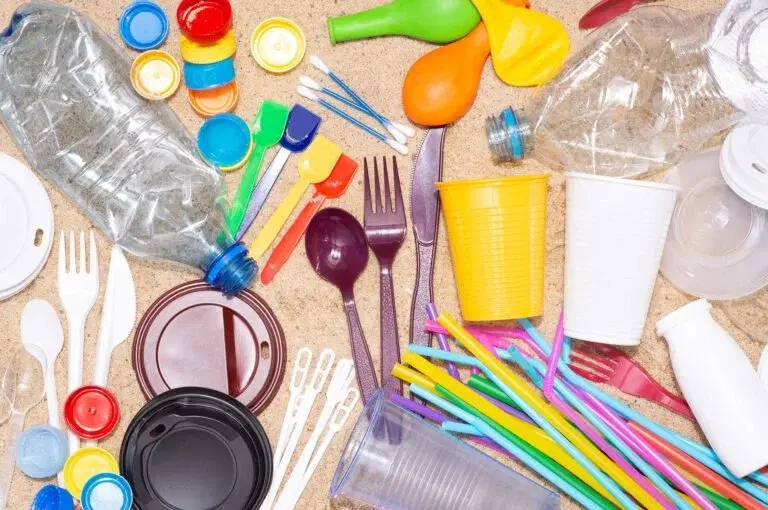Poor enforcement threatens Lagos single-use plastics ban

Some Lagos residents have expressed concerns over the widespread use of Single-Use Plastics (SUPs) across markets, parties, and retail spaces in the state, despite the recent ban.
They expressed their concerns in separate interviews with the News Agency of Nigeria (NAN) on Sunday in Lagos.
A NAN correspondent who monitored the compliance in some areas of the state observed that nylon bags, plastic spoons, and other SUPs remain commonplace, particularly in areas such as Ikotun, Ayobo, Okota, Ajao Estate, Ajah and Iyana Ipaja, among others.
NAN reports that the Lagos State Government commenced full enforcement of SUPs below 40 microns on July 1.
The enforcement followed the expiration of an 18-month moratorium granted after the initial announcement in January 2024.
The ban specifically targets Styrofoam food packs, all forms of polystyrene cups (including disposable cups), plastic straws, plastic cutlery, and nylon carrier bags with a thickness of less than 40 microns.
PET bottles, sachet water, and thicker nylon bags are exempted from the ban.
Mr Anthony Ewubare, a resident of Ikotun, told NAN that provision stores in the area continue to use nylon bags as packaging for customers.
“It’s as if nothing has changed. Shops still hand you your goods in nylons like before,” he said.
Mrs Itunu Owokade, who lives in Ayobo, shared a similar sentiment, stating that plastic spoons and disposable cups are still being used at social events.
“I attended a party last weekend, and it was the usual plastic plates and spoons. No change at all,” Owokade told NAN.
Miss Blessing Okoro said the ban appeared to have made little impact in Okota.
“Even food vendors and traders still pack items in plastic bags,” she said.
Mrs Funmilayo Ojo, a dealer of nylon bags at Iyana Ipaja Market, said the producers of the black nylon bags have stopped producing and supplying them in the area.
“What I am selling now is what remained of the last supplies of the producer. They have stopped producing this type in response to the Lagos State Government ban.
NAN correspondent also observed that traders at the Iyana Ipaja Market were still openly selling nylon bags and other banned plastic items, suggesting low compliance and enforcement in some areas.
Additionally, sellers at Abule Market, Ajao Estate, are not exempt.
A tomato seller at the market named Abu told NAN that he would continue to use nylons until the government provides an alternative.
In response to public concern, Mr. Kunle Adeshina, Director of Public Affairs at the Lagos State Ministry of Environment and Water Resources, acknowledged that while the ban has taken effect, complete compliance will take time.
“It is not unexpected that we still have instances of people trying to test the will of the law. We will continue to ramp up enforcement alongside sensitisation on the dangers of continued usage,” Adeshina said.
An environmentalist and Publisher of EnvironNews, Mr Michael Simire, commented that it is still too early to fully assess the ban’s impact.
“The government’s efforts to enforce the ban and promote sustainable practices are steps in the right direction,” he said.
Simire disclosed that key areas to monitor as the policy progresses were the reduction of plastic waste, especially styrofoam, in drainage and streets, and the increased use of eco-friendly alternatives by businesses and consumers.
He added that the level of compliance across the supply chain—from producers to end-users — should also be monitored.
Simire noted that education, enforcement, and stakeholder engagement would be essential to achieving the intended environmental goals.
The post Poor enforcement threatens Lagos single-use plastics ban appeared first on Vanguard News.







